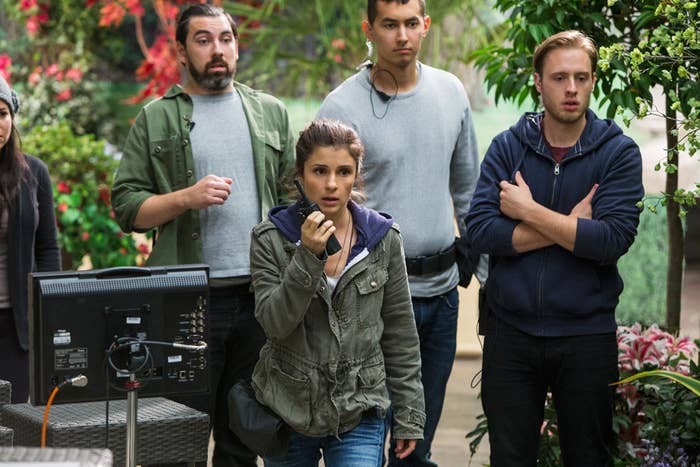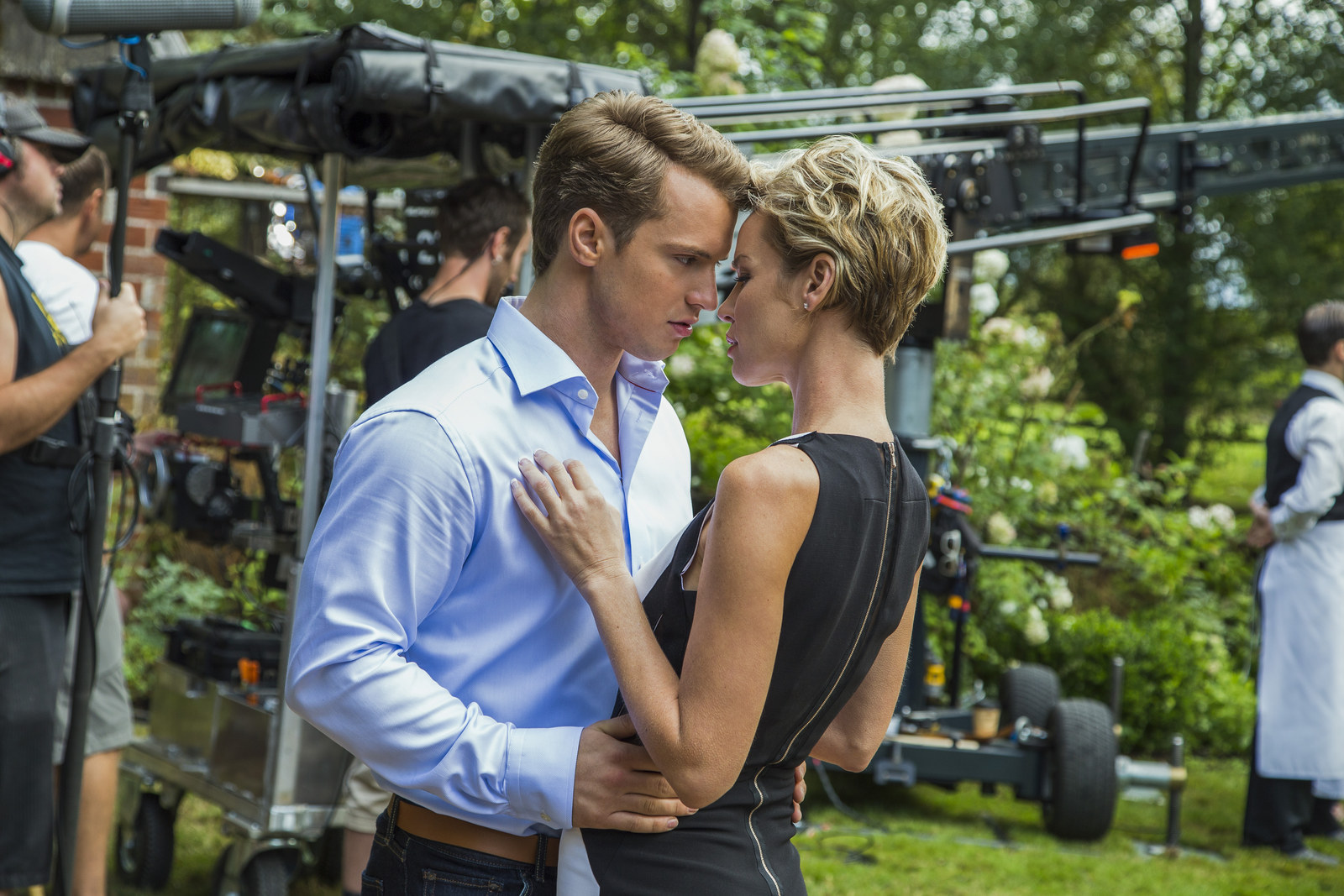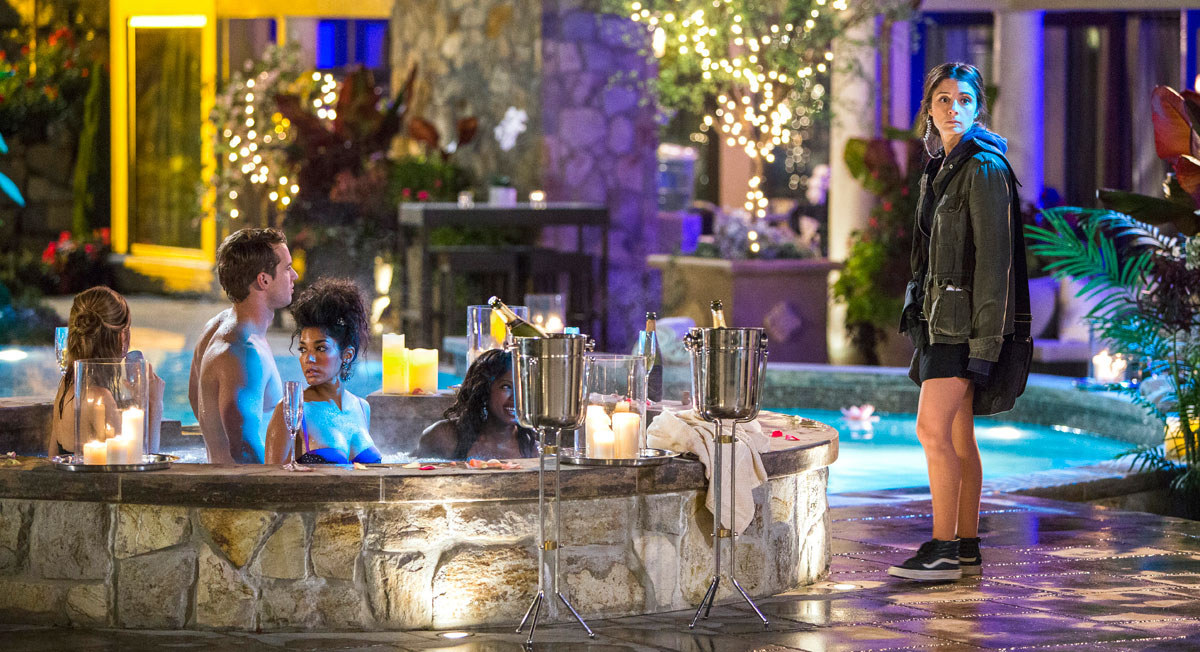
The creaky argument that still gets flung up against reality television like a crucifix before a vampire is that it's not actually all that real. It's staged. It's scripted. Everyone is faking it — the implication being that it's a big scam being pulled on naive audiences who think they're watching a fly-on-the-wall documentary and have no idea that everything on screen is highly manipulated.
Which is, of course, a load of crap.
We are a jaded two-plus decades into our current era of unscripted TV, presided over by the unscripted First Family, the Kardashians, who've turned painstaking image management into an art. We've gone from the manufactured authenticity of MTV's The Real World: New York in 1992 to the monstrous false front of TLC's 19 Kids And Counting, which could be gone for good. The language of reality TV isn't just one with which the world is familiar, it's one with which many of us have become fluent, now that everyone has a camera in their pocket and the opportunity to selectively produce their own lives on social media. The genre's artificiality is long past being a revelation. People may have different levels of understanding of how a production works, but it's not just condescending, it's irrational to believe that audiences just take reality series at face value.
The fun, anyway, is not in calling out all the fake in a reality show; it's in sussing out which elements might be genuine — in trying to spot the beats and emotions that aren't actually calculated in a group of people acutely aware they're on camera. The fact that people are willing to pretend a televised dating show is a great place to find true love is far less interesting than the couples from it who are actually still together.

That idea is central to the warped heart of UnReal, the best and most blistering scripted drama on air right now, and one that is, against all expectations, airing on Lifetime. It's a series about so-called trashy TV that is the opposite of trashy, a show with all bright exteriors and a spirit that's darker than the practiced doom and gloom of True Detective. It's built on the unsettling realization that everything would be simpler and safe to dismiss if the contestants/participants/victims/stars were merely playing roles, and not showing flickers of their real selves in those group dates and confessional interviews.
The series unfolds on the set of Everlasting, a dating show not unlike The Bachelor, on which UnReal co-creator Sarah Gertrude Shapiro worked for multiple seasons. Its self-loathing heroine is Rachel Goldberg, played by a fantastically bedraggled Shiri Appleby. She's a producer with a genius for the psychological warfare that is creating good TV. Her boss, mentor, and captor is Quinn King (Constance Zimmer), a woman whose soul has been desiccated by her years in the business, and who takes being told that she could "make a perfectly happy person jump off a bridge" as a professional compliment.
Quinn, Rachel, and their cohorts are trying to shape a particular kind of story out of carefully chosen raw material, and they have set roles that need to be filled, like the bitch, the potential wife, the virgin, the hot one, the mom. The "girls," as the producers call them, are as aware of these stock types as anyone who's watched one of these shows — but that doesn't stop the participants from, willingly or unwillingly, ending up in them anyway. They can't escape the gravitational pull of their assigned parts, cramming themselves into the boxes available, boxes that are neatened up with strategic editing.

When single mom Mary (Ashley Scott), for instance, meets the 29-year-old "suitor" Adam Cromwell (Freddie Stroma), she grasps immediately that she's been cast as the sad older woman — and indeed, in the control room, a label reading "Desperate MILF" is slapped over her photo. In one of the many quietly brutal moments UnReal offers up in a single episode, Rachel has to bring Mary around by using background information given to her by the show's therapist about Mary's abusive ex-husband, and by presenting Adam as the idealized beau he really isn't. "Adam would never hurt you," she says. "He's a really, really good guy."
It's difficult to watch, and — judging from the way Rachel discreetly thumbs away a tear as she turns away after the deed is done — difficult to do as well. And yet when Mary commits to really participating in the show, she leverages her child and, eventually, her own tragic backstory with the same sort of deftness with which Rachel played her, showing just how much she understands about positioning herself as sympathetic in Adam's eyes and the eyes of the camera. She lived through a real tragedy, but she shares the story with queasily canny timing to secure herself a solo date, establishing herself, over the five episodes that have aired so far, as an unexpected contender.
Then there's the early villain Britney (Arielle Kebbel), who tried to keep to a boring sound bite in her exit interview as retaliation for being kicked off the show, and yet was expertly goaded into a meltdown by Rachel, in the guise of getting real and opening up (while the cameras kept rolling). There's also Anna (Johanna Braddy), whose genuine, earned anguish over news from home was diced into a promo that just made her look crazy. And rodeo queen and sacrificial lamb Faith (Breeda Wool), so guileless that Rachel was finally prompted to step in and try to protect someone when a visit to Faith's Mississippi home led to what she realized was more truth than Faith was really ready to share with the world.

The queasiness of genuine and counterfeit swirling together extends to Adam, a playboy playing a prince and, in a totally disquieting way, something like a love interest for Rachel. Adam's on the show solely for promotional reasons, attempting to reform his image after a sex scandal in order to get business investors. Rachel knows just how far he actually is from the fairy tale figure Everlasting wants to position him as, and keeps getting reminders when she catches him getting an illicit blow job or tricking the production company into sprucing up his bankrupt vineyard. But he's also nice, if in ways that suggest some kind of quid pro quo, and he's charming, and handsome — and still a terrible idea. The way Rachel softens to him shows how even someone who's supposed to play puppet master can lose her place.
The title of UnReal promises artifice, but the more the show reveals about how its backstage bullying works — alcohol everywhere and no food, schoolyard-style gossiping, scenarios in which one woman is publicly picked over another — the more it becomes about how the whole enterprise depends on real vulnerabilities, fears, and insecurities. It's fueled by the bad decisions its contestants make when they're pushed or persuaded to let their guards down.
There's really little to no benefit to being earnest on camera, and the most pragmatic contestant, Athena (Natasha Burnett), actually makes a deal to play into racial stereotypes in order to last longer on a show that's traditionally discarded black women. And yet everything about how Everlasting works is built around eroding defenses and repackaging actual feelings into a corny romance. UnReal is a corrosively good take on reality mechanics that shows it's the unscripted scraps we long for, even though excavating them is a monstrous process.
